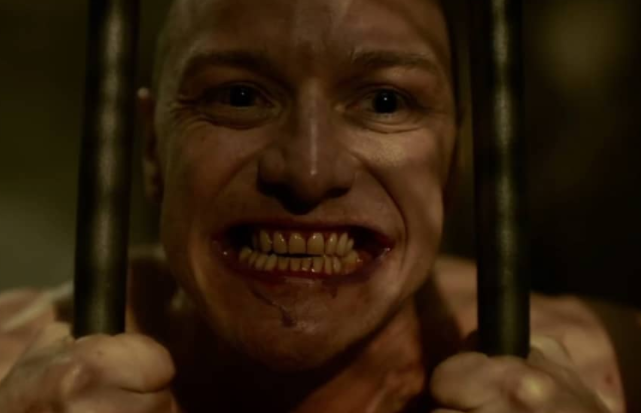There is a belief among those who would be deemed objectively as masochists that to suffer is to be great. The more you suffer, the more immune you are to bullshit, to being sensitive to that which others who have been protected their whole lives would crumble over. And this is the crux of M. Night Shyamalan’s latest psychological thriller, Split, which finds the auteur (yes, I dare use the word) returning to form after a long battle with poorly received movies (e.g. Lady in the Water and After Earth).
Theoretically focused on Barry (James McAvoy, in a truly Oscar-worthy performance), the primary voice to take centerstage in what his therapist, Dr. Karen Fletcher (Betty Buckley), calls “the light” of Kevin Wendell Crumb’s brain, Split opens with a scene at the end of a birthday party thrown by Claire (Haley Lu Richardson). In Shyamalan signature fashion, Claire is a sort of foil for Casey (Anya Taylor-Joy), being that she’s the quintessential popular girl who has only invited the requisite “rebel girl” from her art class to the event out of pity/not wanting her to see everyone else there on social media while she wasn’t. Unfortunately, to add to Claire’s torture, Casey’s uncle hasn’t arrived to pick her up, prompting Claire’s dad to offer a ride to both Claire’s “real” friend, Marcia (Jessica Sula), and Casey.
As Claire’s father loads the presents into the car, Dennis, currently taking the reins in the light of Kevin’s mind, renders him unconscious and does the same to the three girls upon getting into the car, though he is initially hesitant to do so to Casey. An indeterminate amount of time later, the three girls wake up in a dank (not the good kind) holding cell where Dennis gives them very little information as to why they’re there. Meanwhile, Dr. Fletcher overhears the news report of three kidnapped girls and subsequently receives an email from Barry insisting on an emergency session. Familiar enough with the delicacy of his Dissociative Identity Disorder, Dr. Fletcher senses something isn’t quite right, ultimately intuiting that the most shunned personalities of Kevin, Dennis and Patricia, have managed to reassert their power in his mind. Along for the ride is nine-year-old Hedwig, who has aligned himself with Dennis and Patricia because he’s been told that once “the beast” is unleashed, no one will make fun of him anymore. Casey, the shrewdest of the trio, and overtly–through a series of flashbacks–the only one who has experienced pain, tries to capitalize on Hedwig’s vulnerability to free them all.
Throughout Split, it’s evident that the traumas a person has in his life tend automatically to affect others, especially those who have not suffered the same level of trauma. Kevin’s early traumas from his mother’s abusive nature and need to keep everything clean (think Prince’s dad in Purple Rain) shape him in a way that cannot simply exist within himself, but must daily interact with the world around him. It’s almost as though a feeding frenzy of trauma has to exist within every relationship and interaction, with the more damaged imposing his psyche on the less damaged so that they can become level. And then there is the problem of being trapped in a space with a crazy person, where appealing to him with logic is frequently like a game of Russian roulette. Casey is all too aware that in order to beat someone unhinged at his own game, you have to play along with it until the opportunity arises for you to get the fuck away. The tag for that would be “Pander to meander.”
As the girls become aware of Dennis’ condition (not just the OCD and the desire to watch them dance without any clothes on), Casey remains the only one willing to play the long game of escape, knowing better than to make rash decisions based on seemingly easy ways out which ultimately get the others in trouble. Her background in hunting, as taught by her father, is instrumental to this form of survival, notably when Dennis reveals to Dr. Fletcher the beast’s philosophy of feeding on the “impure young”–those who walk through life sheltered and asleep–as they are not worthy of existing. As he says, “the broken are the more evolved.”
Though Dr. Fletcher’s extensive research on DID and the power of the mind to transform and even regenerate the body are meant to be a source of comfort to Kevin and his personalities about how extraordinary they are, she fails to estimate that this extraordinariness could be used for malevolent purposes. But then, when it comes to the powers of the mind, “malevolent” is all in how you look at it.





















